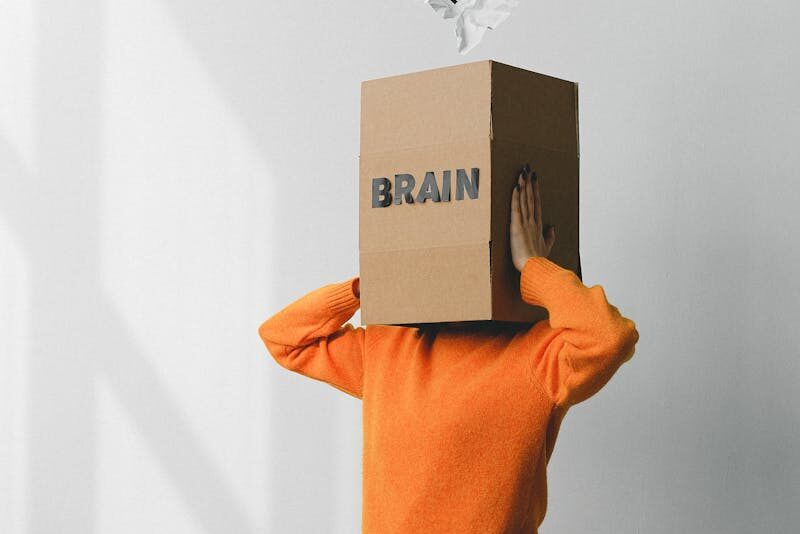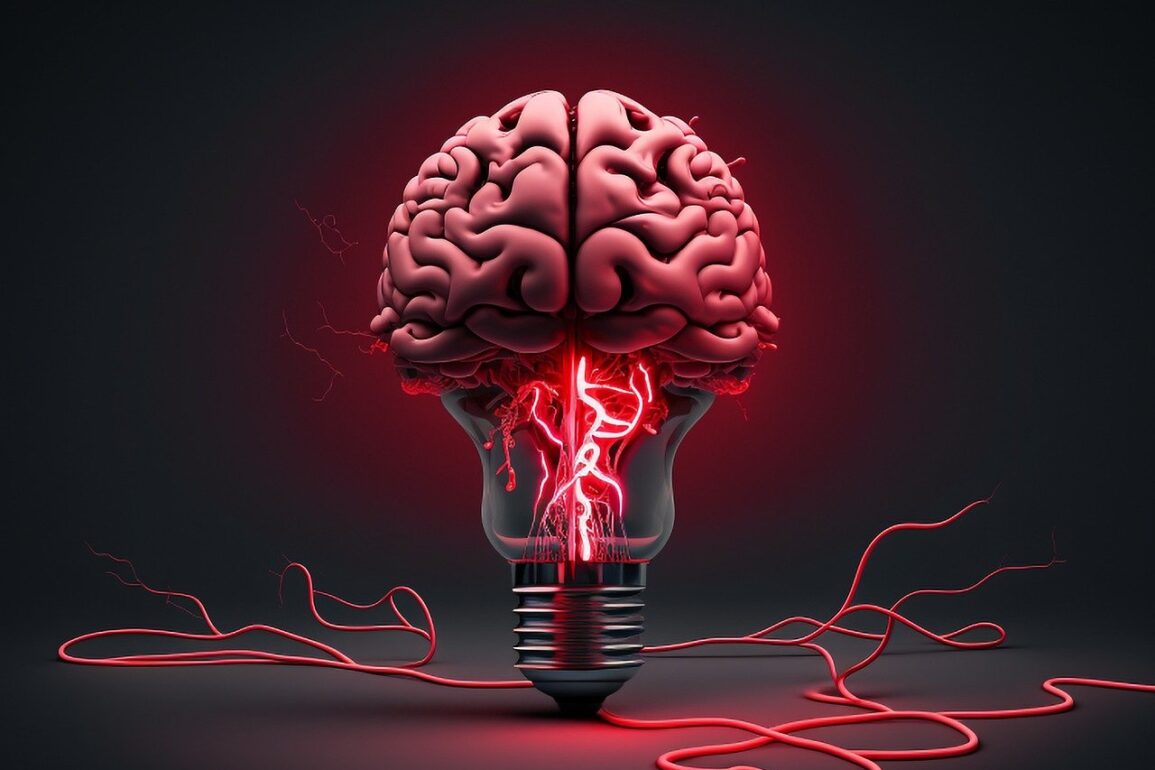Do you really know the limits of your mind’s potential?
Today, I’m excited to guide you through a series of mental ability questions that might just reveal the hidden genius within you.
We’ll tackle ten unique challenges, each designed to test different aspects of your cognitive prowess.
Join me as we dive deep into the fascinating world of personal growth and uncover some surprising insights about our minds.
So, are you ready to discover what’s really going on inside your head?
Useful
- Discover the secret technique to unlock your inner genius: download your free guide
- Rapidly unleash your brain’s latent power with a powerful “digital pill” …that works in just 15 minutes
1. Can You Make the Tough Choice?
Imagine this: you’re offered two amazing job opportunities.
One is in a bustling city with a top-notch company, the other in a quaint town with a startup that promises rapid growth.
How do you decide?
This dilemma isn’t just about choosing; it’s about understanding your priorities and knowing yourself.
As a mindfulness enthusiast and founder of Sons of Universe, I’ve learned that such decisions test our mental agility and personal values.
They provoke a deeper understanding of what truly drives our happiness and success.
Remember, it’s not just the options, but what they signify about our desires and fears.
Mental ability questions often focus on decision-making scenarios like this to reveal our underlying motivations and cognitive strengths.
Tip: Always weigh your choices against your long-term goals to make decisions easier.
2. What’s the Next in This Sequence?

Ever looked at a sequence of shapes or numbers and wondered what comes next?
It’s like a little brain teaser, isn’t it?
Well, this is where your brain’s pattern recognition skills kick in.
Whether it’s predicting the next note in a melody, forecasting market trends, or solving the type of question that tests our critical thinking, we rely on this ability daily.
For instance, a while back, I was playing a game with my niece where we guessed shapes that followed in a sequence.
It was fascinating to see her quickly catch on to patterns even before I did!
It shows how intuitively we use this skill from a young age, and it plays a crucial role in our ability to navigate and make sense of the world around us, enhancing our mental ability skills.
Learn more about how our brains handle pattern recognition.
Tip: Practice pattern recognition with simple daily puzzles; it sharpens your mind!
You may like:
8 telltale signs your third eye is open (here’s how I discovered them)
9 Hacks To Enhance Your Brain Power, Increase Memory And Concentration
10 controversial truths about online hypnosis: can you safely hypnotize yourself?
3. How Fast Can You Rearrange This Sentence?
Now, let’s shuffle things up!
If I give you the words: “the dog chased the ball,” mixed up as “ball the chased dog the,” could you rearrange them quickly?
This exercise isn’t just about moving words around; it tests your verbal reasoning, which is pivotal for effective communication.
Think about the last time you had to quickly make sense of a confusing email at work.
Being able to rearrange and interpret information swiftly can be a real game-changer.
Mental ability questions often include such tasks to assess and enhance our verbal reasoning and cognitive skills.
Personally, I’ve found that reading diverse genres has significantly boosted my ability to reorganize and clarify information on the fly.
Tip: Expand your reading list to improve your verbal agility and problem-solving skills in conversations.
Can you boost your brain power with self-hypnosis?
Known as the most powerful type of meditation, download your personal brainwave audio (free) and start taking control of your life again, fast.
4. Can You Picture This Object Rotated?
Imagine you’re an architect looking at blueprints, or perhaps you’re trying to fit a new couch into an awkward living room corner.
Visualizing objects in three dimensions and understanding how they fit into space is what we call spatial intelligence.
This skill is essential not just for architects or engineers but also comes in handy when you’re trying to navigate a new city or even when playing chess!
I once helped a friend move, and visualizing where everything would go before moving it saved us a lot of time and backache.
Enhancing your spatial intelligence can make you more effective in everyday tasks and improve your decision-making in spatially demanding situations.
Over time, tackling different types of mental ability questions that challenge your spatial reasoning can increase the difficulty level of tasks you can handle.
For deeper insights into spatial intelligence, the article “You can improve your spatial skills with training” by the University of Colorado.
Tip: Use 3D puzzles or model building kits to boost your spatial reasoning in a fun way!
You may like:
12 simple hacks to reverse memory loss and forgetfulness at any age
How do You Rewire Your Brain and Remove Your Subconscious Blocks?
5. Can You Solve This Logical Riddle?
So, imagine you’re faced with a riddle where you must figure out who owns a zebra and who drinks water, given a list of tricky clues.
How would you tackle it?
Logical riddles like this are not just brain teasers for fun; they sharpen your problem-solving skills.
Think about a time when solving a problem at work felt like unraveling a mystery.
Developing logical reasoning is like mental strength training; it helps you approach complex challenges with a structured mindset.
I remember once cracking a particularly tough logic puzzle that turned out to be simpler than it seemed—it was all about breaking it down into manageable parts.
Tip: Approach each problem step-by-step to avoid feeling overwhelmed.
6. How Good Is Your Memory?

Ever tried to remember a grocery list you left at home?
Memory isn’t just about recalling facts; it’s about weaving those memories into your daily life.
There are various techniques to boost memory retention like mnemonics, which involve connecting information to common items or creating vivid associations.
I’ve personally used the method of loci at networking events to remember names by associating them with the venue’s layout.
It’s fascinating how our brain can be trained like a muscle to improve memory through regular practice and technique.
This approach can be especially useful in preparing for aptitude tests or when needing to recall information quickly during phone calls.
Effective memory training can help you manage various mental ability question types and enhance your logical thinking.
For an in-depth look at strategies for improving memory, read this insightful article: “Science-Backed Memory Tips and Recall Techniques“.
Tip: Use vivid imagery or strong emotional connections to make memories stick!
7. Can You Crack This Math Puzzle?
Here’s a fun challenge: if three cats can catch three bunnies in three minutes, how many cats are needed to catch 100 bunnies in 100 minutes?
Puzzles like this test more than just your math skills; they examine your ability to apply logical thinking to numbers.
Numerical reasoning is crucial in daily decisions, like figuring out if you’ve got enough gas to reach a destination or if that bulk deal at the supermarket is really worth it.
Just last week, I saved a chunk by calculating the per-unit price of packs of socks!
It shows how useful a good grasp on numbers can be in the real world.
Tip: Break down complex problems into simpler, smaller parts to find a clear solution faster.
Can you boost your brain power with self-hypnosis?
Known as the most powerful type of meditation, download your personal brainwave audio (free) and start taking control of your life again, fast.
8. Can You Analyze This Data Correctly?
Let’s dive into those graphs and charts.
Ever found yourself scratching your head, trying to make sense of data at a glance?
Analytical reasoning isn’t just about understanding what’s in front of you; it’s about making critical decisions based on that data.
Whether it’s in competitive exams or the boardroom, the ability to dissect and interpret complex information accurately is crucial.
This is where mental ability questions come into play, often challenging us with data interpretation to enhance our analytical skills.
Take a real-life scenario: deciding on a budget cut.
You’d need to analyze past spending trends and forecast future needs—all reliant on your data interpretation skills.
And hey, getting it right can really set you apart in today’s data-driven environment!
Tip: Always cross-check your initial interpretations to catch any misreads or biases.
9. Can You Think Outside the Box?
Here’s a curveball for you: imagine predicting market trends in an industry you’re unfamiliar with.
This requires abstract reasoning—a skill that asks you to jump out of conventional thinking patterns and explore creative solutions.
It’s about looking beyond the obvious, something I had to do when redesigning my blog to make it stand out.
Abstract thinking can lead to breakthrough innovations and solve problems that seem insurmountable.
It’s thrilling, really, like putting together a jigsaw puzzle without seeing the picture on the box.
Tip: Try to approach problems from multiple perspectives to spark creativity and find unique solutions.
10. How Well Can You Read Emotions?
Consider this: you’re at a friend’s surprise party, and just as they walk in, someone spills a drink on them.
What’s your move?
Reading the room and offering a comforting word or a helping hand is where emotional intelligence shines.
This skill is vital in managing social situations, building relationships, and navigating complex emotional landscapes.
It impacts every interaction we have, from personal relationships to professional settings.
I’ve found that being in tune with others’ emotions helps in understanding underlying concerns that aren’t voiced out loud, which is invaluable in leadership and teamwork.
Tip: Practice active listening to enhance your emotional intelligence and connect better with others.
Conclusion
We’ve journeyed through a series of mental ability questions today, each designed to sharpen a different facet of your cognitive abilities—from analytical reasoning to emotional intelligence.
Regularly challenging these skills is crucial, not just for personal development but for thriving in professional and social settings.
As we continue to navigate life’s complexities, enhancing our mental skills can lead to greater innovation and deeper interpersonal connections.
I encourage you to embrace these challenges, practice diligently, and never stop exploring new ways to expand your mental horizons.
Ready to unlock your hidden genius?
Can you boost your brain power with self-hypnosis?
Known as the most powerful type of meditation, download your personal brainwave audio (free) and start taking control of your life again, fast.




